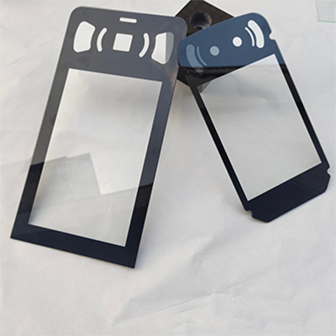Dec . 07, 2024 01:21 Back to list
Innovative Float Glass Panels for Modern Architectural Design and Applications
The Benefits and Applications of Float Glass Panels
Float glass panels have revolutionized various industries, especially in architecture and manufacturing. This innovative glass type is produced through a unique float process, where molten glass is floated on molten tin, resulting in a smooth, uniform thickness. The characteristics of float glass panels make them an ideal choice for numerous applications, providing both aesthetic appeal and functional benefits.
Characteristics of Float Glass Panels
One of the most striking features of float glass is its clarity. Due to the manufacturing process, float glass has minimal impurities and bubbles, resulting in high optical clarity. This quality is essential in applications where visibility is a key concern, such as in windows, display cases, and mirrors. Moreover, the uniform thickness contributes to consistent light transmission, making float glass a preferred choice in various settings.
Another noteworthy characteristic of float glass is its versatility. Float glass panels can be cut to size, and their surfaces can be treated or coated to enhance specific properties. For instance, low-emissivity (low-e) coatings allow float glass to reflect heat, making it energy efficient in buildings. Additionally, float glass can be tempered or laminated for added strength and safety, providing options suitable for diverse applications.
Applications in Architecture
The architectural world has embraced float glass panels for their aesthetic qualities and functional benefits. Buildings designed with large glass facades benefit from the natural light that float glass allows while maintaining energy efficiency. The transparency of floating panels enables architects to create visually stunning designs without compromising structural integrity. Projects ranging from skyscrapers to residential homes incorporate float glass to maximize views and create seamless indoor-outdoor connections.
Furthermore, float glass panels can be used in insulating glass units (IGUs)
. When combined with other materials, they enhance thermal performance, providing effective insulation against temperature fluctuations. This feature is particularly crucial in energy-efficient buildings, where regulating indoor climates is a priority.float glass panel

Use in Furniture and Interior Design
Beyond architecture, float glass panels have found their way into the realm of interior design and furniture. They are used extensively in tabletops, shelving, and decorative partitions. The sleek appearance of float glass complements modern aesthetics, allowing for elegant designs that enhance the overall look of a space. Additionally, glass furniture made from float panels is often easier to clean and maintain, supporting hygiene in domestic and commercial environments.
The safety and durability of float glass also make it suitable for high-traffic areas. In offices, retail spaces, and public places, the resistance to scratches and damage ensures that glass installations maintain their visual appeal over time. Designers appreciate this benefit, as it allows for innovative and practical solutions without frequent replacements.
Float Glass in Technology
In addition to its architectural and interior applications, float glass plays a significant role in technology. It is vital in producing high-resolution displays for televisions, smartphones, and monitors. The high level of transparency and ability to be treated for anti-glare properties makes float glass ideal for electronic devices. This application highlights the glass's versatility and its essential role in modern technological advancements.
The development of smart glass technology has further expanded the possibilities for float glass panels. Smart glass can change its properties in response to environmental conditions, such as temperature and light. This technology is used in energy-efficient buildings where dynamic control of light and heat is desired, providing an additional layer of functionality to float glass.
Conclusion
The evolution of float glass panels marks a significant advancement in materials science, offering numerous benefits across various industries. From architecture and interior design to technology and beyond, float glass panels provide clarity, versatility, and durability. As innovation continues to push the boundaries of what is possible with materials, float glass is expected to remain at the forefront of design and functionality, shaping the way we build and interact with our environments. Whether in grand architectural masterpieces or simple interior pieces, float glass will undoubtedly continue to illuminate spaces for years to come.
-
Safety and Style with Premium Laminated Glass Solutions
NewsJun.24,2025
-
Reinvents Security with Premium Wired Glass
NewsJun.24,2025
-
Premium Float Glass Line for Modern Architecture
NewsJun.24,2025
-
Low Emissivity Glass for Energy-Efficient Architecture
NewsJun.24,2025
-
High-Performance Insulated Glass Solutions for Modern Architecture
NewsJun.24,2025
-
Elevates Interior Style with Premium Silver Mirror
NewsJun.24,2025
Related PRODUCTS














